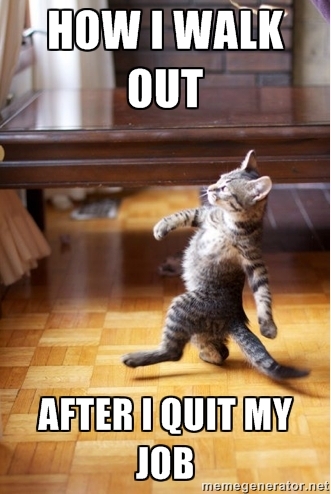By Stephanie Hammerwold
After what has been one of the highest profile terminations of the year, former FBI Director James Comey recently testified before the Senate Intelligence Committee. From an HR perspective, one of the key things to come out of Comey's story of the events leading up to his termination was the fact that Comey took notes on his interactions with the president. While it is currently unclear what the results of all the testimony from Comey and others will mean, there are lessons to be learned here about what to do when you suspect your boss or another authority at work are engaged in ongoing questionable or inappropriate behavior.
Why Documentation Matters
In my HR career, I have done a fair number of workplace investigations. Sometimes I was lucky and had compelling evidence such as security camera footage, text messages or emails that backed up the complainant's story. But more often than not, a workplace investigation comes down to one person's word against another. In these situations, the HR person investigating the complaint has to sort through interviews and statements to determine as best they can what actually happened. The situation between Comey and the president was like this, so we are left with what many have called a he said/he said situation.
We can learn a lot from Comey's actions prior to his termination. Comey chose to document conversations with the president in memos. He stated that he did so because he was worried the president would lie about the nature of their meetings. While notes about meetings are subject to bias and do not provide the solid proof that things like emails or security camera footage can, they do add credibility to someone's version of events. This points to the biggest piece of advice I give any friend telling me of problems with a particular person at work: document what is happening.
What to Document
When we try to recall events from the past, our memories can get fuzzy, and specific details can slip from our minds. Writing things down immediately after they happened means you have a clearer recollection of what happened. It also gives you a chance to write down facts before you have had a chance to talk it through with someone else, think about what happened or do anything else that can add layers of interpretation and meaning to the initial interaction.
Be as specific as possible. Include dates and times, names of any witnesses and details about what happened and what was said. Keeping careful records of what is happening strengthens your complaint and gives HR a clear sense of the problem. It can be challenging for HR when you come forward and simply say your boss is treating you horribly; however, if you present notes showing details of a meeting where the boss yelled at an employee and other moments of bad behavior, it gives HR specific issues to address with the bad boss. Documenting repeated incidents also helps establish a pattern of bad behavior, which is something your HR department should quickly address.
What to Do with Documentation
For most of us, taking the steps Comey did to get his memos to the New York Times are unnecessary. When you notice bad behavior is ongoing, it is time to take things to HR. With your documentation in hand, you have details that go beyond, "My boss is mean." Specific details give HR a firm place to start their investigation. Submitting your notes will also ensure that your version of events is clearly documented.
Even after HR has wrapped up an investigation and taken appropriate disciplinary action against the offending party, keep an eye on the situation. If things get bad again, document the incidents and report them to HR, so they can take further disciplinary action.
The advice in this post refers to ongoing issues, but keep in mind that it is good to document a single serious incident as well. If something is severe, always report it to HR right away. But even if you have told your story to HR, it is still a good idea to take a moment to write down your version of events shortly after it happened. Once again, it helps ensure that you get important details down on paper before your memory gets hazy.
Some Final Thoughs
While the types of incidents we investigate in the workplace are not quite at the level of the events unfolding in DC, we can take important lessons from the investigation. Most relevant to the average workplace is the value of good documentation. In HR we often remind managers to document performance problems and conversations with employees, and the same holds true for employees who notice ongoing problems with a coworker or boss. It strengthens your complaint and helps provide accurate and specific detail about what you experienced.

